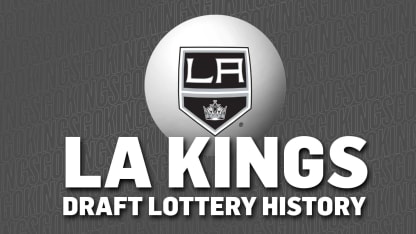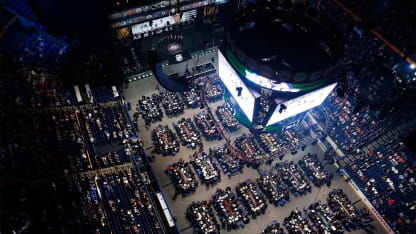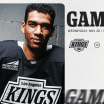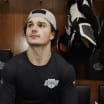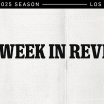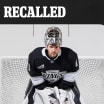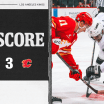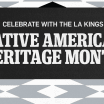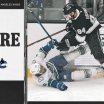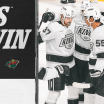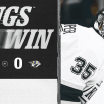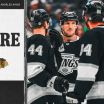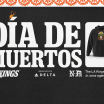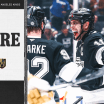The Kings may have won the lottery, but they didn't land the top prize. The Ottawa Senators held onto the first position and the New York Islanders maintained the second spot. Meanwhile, the Mighty Ducks of Anaheim, who finished four spots lower in the standings than the Kings and had a 15.1% chance to move up to first, ended up getting bumped down to fourth by their local rivals.
Although it wasn't a bona fide win for the Kings, there was still plenty of optimism. Following the results, general manager Sam McMaster proclaimed to reporters that "maybe things are finally looking up for the Kings." His words rang hollow.
The Kings ended up using the third overall selection to take defenseman Aki Berg. Although highly-touted going into Entry Draft, the hulking Finnish rearguard never lived up to his billing in Los Angeles.
Watch: Youtube Video
After becoming a regular on the Kings' blue line in 1997-98, Berg was traded three years later to the Toronto Maple Leafs for Adam Mair and the Leafs' 2001 second-round pick, which the Kings used to select Mike Cammalleri.
Following the 1995 lottery and draft, McMaster felt confident in the direction that the Kings were heading. So much so that, even before the 1995-96 season began, he traded the team's first-round pick to the Washington Capitals for Dimitri Khristich and Bryon Dafoe. As the season unfolded and the Kings descended to the bottom of the standings, the move looked like it could be destined for disaster.
Just a year after winning the inaugural lottery, fans and management were now rooting to lose the sweepstakes to avoid having to surrender the first overall pick to another franchise. The Kings ended up finishing with the fourth-worst record that year and had a 10.9% chance of moving up to first. The team collectively held its breathe.
Luckily for McMaster and the Kings, they only had to give the Capitals the fourth-overall pick in what turned out to be one of the weakest drafts in league history.
After skirting disaster, the Kings have had other brushes at winning the lottery. Following the 1996-97 season, their first full campaign without Wayne Gretzky, they finished third from the bottom, but did not move up at all and ended up drafting Olli Jokinen at number three.
With the team re-entering the playoff picture in the years that followed, the draft lottery did not come back into focus again until 2003. But with the Kings finishing just outside the cut-off for the postseason, they never had a shot at winning the lottery. Until 2012, the league continued to limit the first overall selection to the five teams with the lowest regular-season point totals.
Nevertheless, the Kings still made out like bandits in the first-round of the Entry Draft in those subsequent years. In 2003, they drafted Dustin Brown 13th overall, not a bad spot for somebody who just recently became the franchise leader in games played. Two years later, the Kings snagged Anze Kopitar at 11th. A two-time Selke winner, Kopitar is already in the Kings' top-five in all offensive categories.
